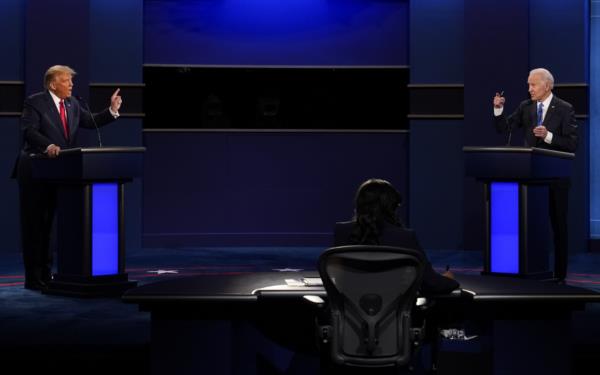
President Biden recently responded to a controversial video posted by former President Donald Trump, where Trump referenced a 'unified Reich' if he were to win re-election. The use of the term 'Reich,' commonly associated with Nazi Germany, raised concerns and drew parallels to Adolf Hitler's rhetoric.
While Trump's campaign denied creating the video and attributed its posting to an unaware staffer, this incident is not the first time Trump has been linked to Nazi rhetoric. He has been known to defend and socialize with white nationalists, express admiration for Hitler's actions, and dehumanize political opponents and immigrants using incendiary language.
Trump's choice of words, such as 'poisoning the blood of our country,' 'animals,' 'diseases,' and 'vermin,' mirrors Hitler's rhetoric, which aimed to demonize certain groups of people. Despite being confronted with the historical significance of his language, Trump has continued to use similar terms, raising concerns about his stance on white supremacists and extremists.
Notable instances, like Trump's 'stand back and stand by' comment and his remarks on the Charlottesville protests, have highlighted his reluctance to unequivocally denounce white supremacists. His words have been noted to resonate with neo-Nazis and white supremacists, prompting questions about his refusal to reject their support.
The use of language with dark historical parallels has sparked debates about the implications of Trump's rhetoric and its impact on society. As a public figure with a significant platform, Trump's words carry weight and can influence various groups, including those with extremist ideologies.
President Biden's swift condemnation of Trump's language underscores the importance of responsible and inclusive communication in political discourse. The echoes of Hitler's rhetoric serve as a stark reminder of the dangers of divisive language and the need for leaders to promote unity and understanding.







